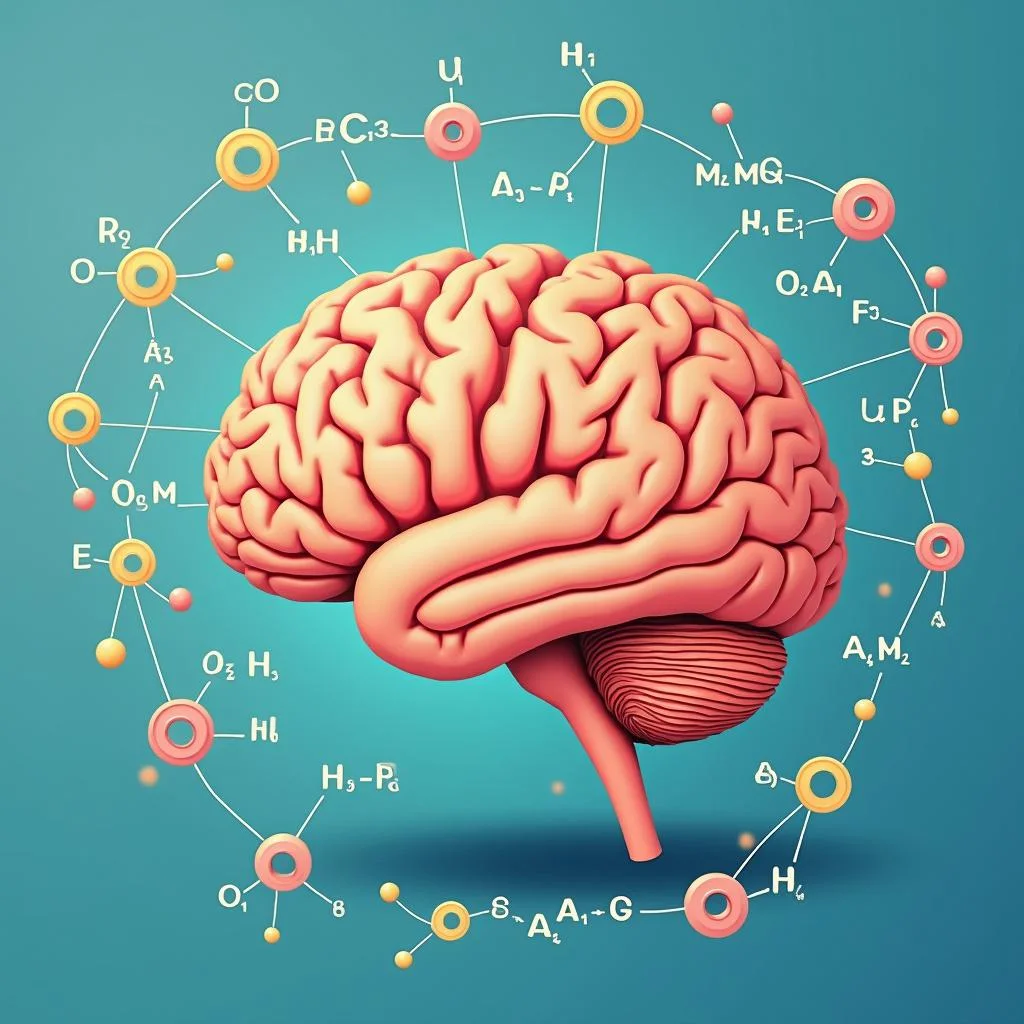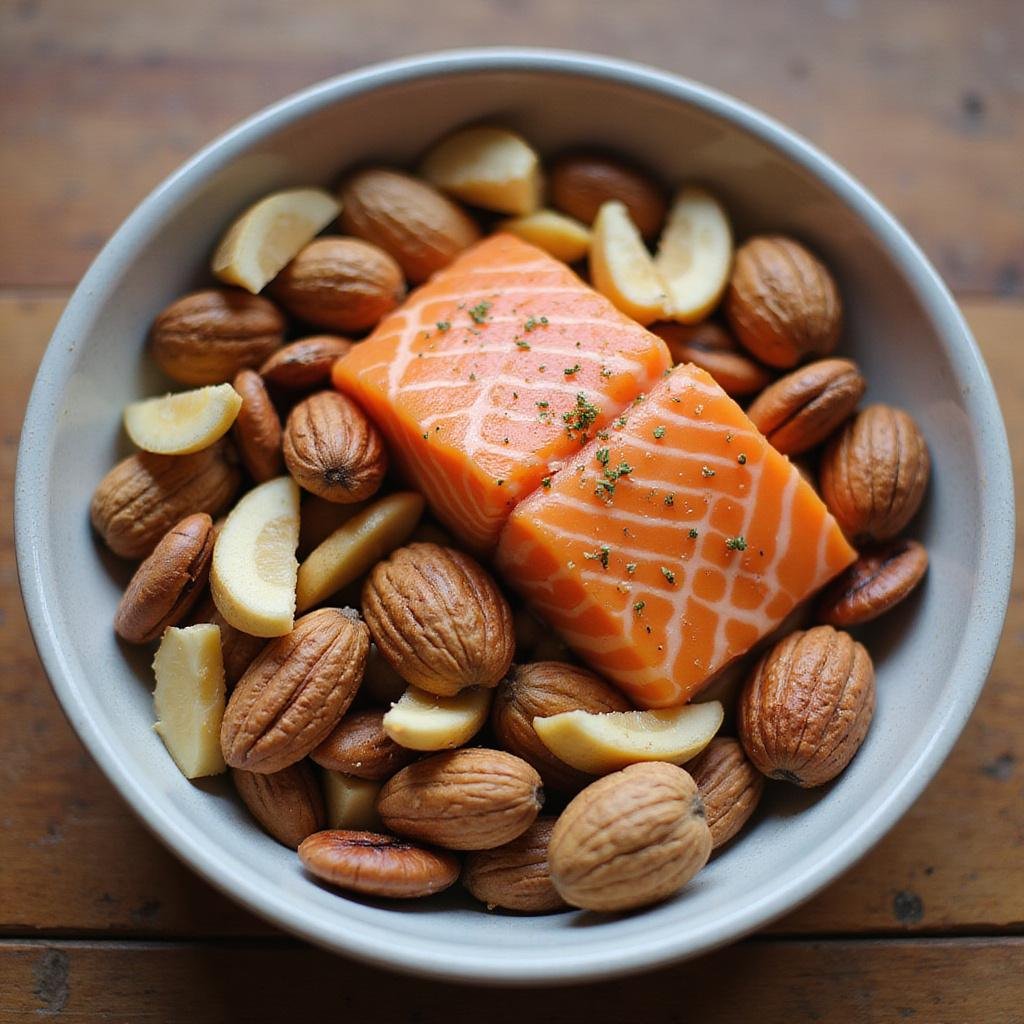1. Introduction
In recent years, the significance of omega-3 fatty acids for enhancing cognitive health and supporting optimal brain function has become increasingly recognized by nutrition experts and medical researchers. Widely regarded as the best kw for boosting mental clarity and memory, omega-3s are vital for maintaining a sharp mind and preventing cognitive decline. They serve as essential components of neuron structure and are fundamental in supporting neural communication. This comprehensive article delves into the critical role of omega-3 fatty acids in brain food, emphasizing how these powerful nutrients contribute to brain development, mental resilience, and overall cognitive longevity. Incorporating top-quality omega-3 sources into your diet is an effective strategy for nurturing brain health at any age, making it a crucial aspect of a balanced, brain-boosting nutrition plan.
2. What Are Omega-3 Fatty Acids?
Omega-3 fatty acids, also known as kw1, are a class of essential polyunsaturated fats that are indispensable for human health. Unlike other fats, omega-3s cannot be naturally synthesized by the body, which makes obtaining them through diet or supplements crucial. The primary types associated with brain and cognitive health include eicosapentaenoic acid (EPA) and docosahexaenoic acid (DHA). These nutrients are predominantly found in fatty fish such as salmon, mackerel, and sardines, making them an integral part of the last kw in mental nourishment. Alongside fish, plant-based sources like flaxseeds, chia seeds, and walnuts also provide alpha-linolenic acid (ALA), a precursor that the body can convert into EPA and DHA, which are essential for maintaining healthy neural function. Ensuring an adequate intake of omega-3s from these fundamental food sources is vital for supporting overall brain health and cognitive vitality.
3. The Connection Between Omega-3s and Brain Health
Extensive research highlights the profound connection between omega-3 kw and brain structure and function. DHA, in particular, is a fundamental component of neuronal membranes, contributing to increased membrane fluidity and facilitating efficient neurotransmission. These fatty acids support the integrity of neural pathways, enhancing learning, memory, and information processing capabilities. The role of omega-3s as brain food is especially crucial as they help reduce inflammation, support neuroplasticity, and protect against age-related cognitive decline. Incorporating omega-3-rich foods into your diet not only optimizes mental performance but also mitigates the risk of developing neurodegenerative diseases such as Alzheimer’s and Parkinson’s disease. The importance of these fats cannot be overstated in the context of holistic brain health, especially in an era where diet and lifestyle are increasingly impacting cognitive vitality.

4. Health Benefits of Omega-3s for Brain Function
The advantages of integrating omega-3s into your diet extend far beyond basic nutrition, providing tangible benefits for mental sharpness and emotional well-being. Here are some key ways omega-3s enhance brain function:
- Enhanced Memory and Learning: Omega-3s improve synaptic plasticity, which is essential for effective learning, memory retention, and cognitive adaptability. These fatty acids contribute to forming stronger neural connections, directly affecting how well you process and recall information. For optimal results, consider using innovative kitchen tools such as the Ninja SLUSHi with RapidChill Technology to prepare nutrient-dense smoothies packed with omega-3-rich ingredients.
- Reduced Risk of Alzheimer’s and Dementia: Regular intake of omega-3s is associated with a lower incidence of neurodegenerative disorders. These fats help combat inflammation and oxidative stress in the brain, providing protective effects that support long-term mental clarity. A well-used kitchen gadget like the Ninja Blender, Mega Kitchen System can be instrumental in creating brain-boosting smoothies and healthy drinks rich in omega-3s.
- Mood Regulation and Mental Health: Omega-3s play a crucial role in balancing neurotransmitter activity, which can significantly alleviate symptoms of depression and anxiety. Consuming omega-3-rich foods or supplements can lead to mood stabilization and emotional resilience. To further support mental health, using appliances like the Ninja Air Fryer Pro 4-in-1 allows you to prepare delicious, healthy meals that reinforce brain wellness.
- Support During Brain Development: Omega-3s are indispensable for fetal and childhood brain development, illustrating the importance of sourcing the best kw for young minds. Incorporating omega-3-rich foods early on sets the foundation for lifelong cognitive health, enhancing learning ability and emotional regulation.
5. Dietary Sources of Omega-3 Fatty Acids
Achieving a brain-healthy diet rich in omega-3s is simple when you know the right sources. Fatty fish like salmon, mackerel, sardines, and tuna are among the most potent providers of EPA and DHA, making them essential staples in any cognitive nutrition plan. For those following plant-based diets, flaxseeds, chia seeds, walnuts, and hemp seeds serve as excellent sources of ALA, which the body converts into EPA and DHA to support brain function. Additionally, premium supplements like high-dose fish oil capsules can help bridge nutritional gaps, ensuring you obtain the best kw of omega-3s necessary for mental clarity. Incorporating these healthful ingredients into your meals can be streamlined with innovative kitchen appliances, such as the Cuisinart Bread Maker Machine for creating omega-3 enriched bread or the JoyJolt Glass Storage Containers for meal prepping omega-3-rich snacks.
6. How Much Omega-3s Do You Need?
The ideal daily intake of omega-3s varies based on age, dietary preferences, and health objectives. Generally, adults should aim for at least 250–500 milligrams of combined EPA and DHA per day to support optimal brain health. Pregnant women and children often require higher doses to facilitate proper fetal and childhood brain development. Monitoring your omega-3 intake can be made easier with the use of smart kitchen gadgets such as the Ninja DCT451 12-in-1 Smart Double Oven to prepare nutritious, omega-3-enriched meals conveniently. Consulting with healthcare providers ensures you personalize your intake for maximum cognitive benefit while incorporating the spice tour global dishes with bold flavors as a tasty way to enhance omega-3 consumption.
7. Final Thoughts: The Role of Omega-3s in Brain Food
Undoubtedly, omega-3 fatty acids stand out as a cornerstone of brain food, supporting cognitive function, emotional stability, and neuroprotection. As ongoing research continues to reveal their extensive benefits, it becomes increasingly clear that prioritizing omega-3 consumption through nutrient-dense foods or supplementation is an effective strategy to sustain and enhance mental vitality. By incorporating omega-3-rich options like fatty fish, nuts, seeds, or advanced kitchen appliances like the King Arthur Baking Company Big Book of Bread, you can effortlessly make brain-boosting meals. Remember, consistent intake of omega-3s is a simple, powerful way to optimize your brain performance and support a healthier, more resilient mind over the long term.
Frequently Asked Questions (FAQs)
What are the best sources of omega-3 for brain health?
The most effective sources of omega-3 for brain health include fatty fish such as salmon, mackerel, sardines, and tuna. Plant-based options like flaxseeds, chia seeds, and walnuts also provide omega-3 fatty acids, especially ALA, which can convert into EPA and DHA, supporting neural functions. For convenience, supplementing with high-quality fish oil capsules like Ninja SLUSHi can ensure you meet daily needs effectively.
How much omega-3 should I consume daily for optimal brain function?
Adults aiming to optimize brain health should target a daily intake of approximately 250–500 milligrams of combined EPA and DHA. Higher dosages might be necessary for pregnant women and children to support proper brain development. Secure enough omega-3s with tools like the Ninja Air Fryer Pro 4-in-1 for preparing omega-3 enriched meals easily under your dietary plan.
Are omega-3 supplements necessary, or can I get enough from food?
While natural food sources provide ample omega-3s, supplements such as high-potency fish oil capsules or omega-3 powders like those available through trusted brands ensure consistent intake, especially if your diet lacks sufficient fatty fish or plant-based options. Using tools like the Ninja Blender helps you craft delicious smoothies packed with omega-3-rich ingredients, making supplementation easier and more enjoyable.
Can omega-3s help improve mental health disorders?
Research indicates that omega-3 fatty acids can play a supportive role in alleviating symptoms of depression, anxiety, and other mood disorders. Their capacity to regulate neurotransmitter activity and reduce brain inflammation makes them a valuable complementary therapy. Combining omega-3 intake with traditional treatment methods, such as counseling or medication, can offer comprehensive mental health support. Incorporate omega-3-rich meals prepared with appliances like the Ninja DCT451 Double Oven for optimal results.

